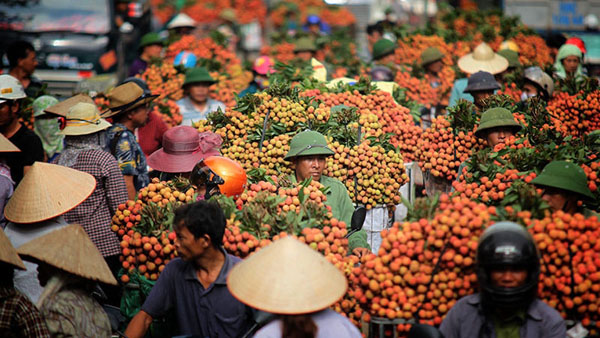


|
The average price of lychee this year is VND40,000 (US$1.76) per kg Director
of Bac Giang provincial Department of Industry and Trade Tran Quang Tan said
that the price of Luc Ngan lychee has hit the highest levels since first
being planted in Bac Giang in 1953.
The
average price of lychee this year is VND40,000 (US$1.76) per kg while last
year's average price was VND25,000 (US$1.1) per kg.
According
to the report of the provincial Department of Industry and Trade, Bac Giang
had consumed nearly 81,000 tonnes of lychee by July 10, with a total revenue
of over VND31 trillion (US$1.36 billion).
The 2017
lychee harvest is expected to conclude in four days’ time with a total
estimated output of approximately 86,000 tonnes.
Bac Giang
lychee growers are estimated to earn an additional VND1.2 trillion - VND1.5
trillion (US$52.8 million – US$66 million) in revenue in comparison with
2016.
Around
54,400 tonnes of lychee have been sold domestically and the remaining has
been exported to 30 countries across the world.
This
year, lychee has been piloted for export to the
|
Source: NDO